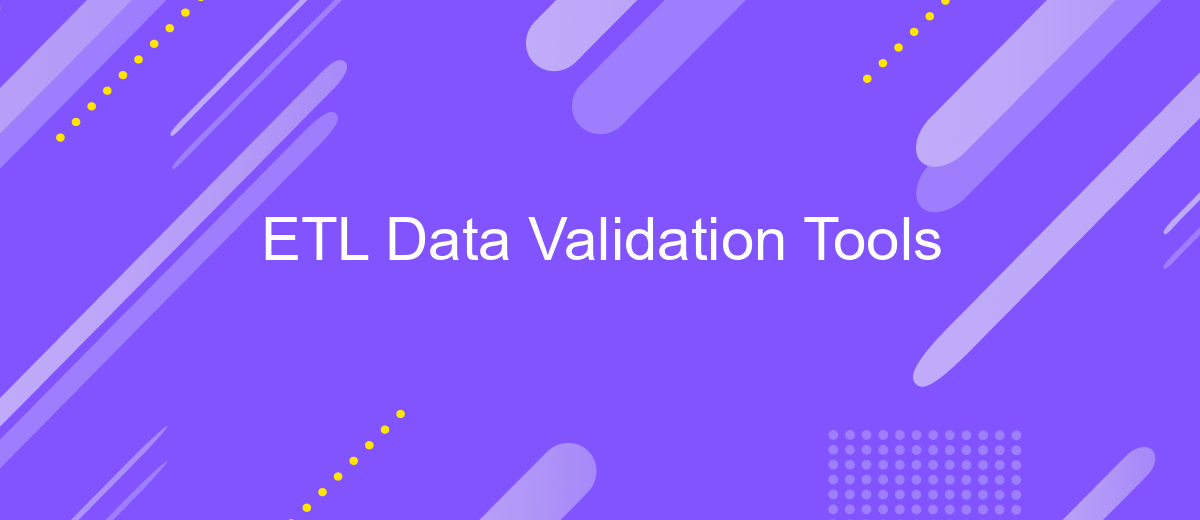ETL Data Validation Tools
In the realm of data management, ETL (Extract, Transform, Load) processes are vital for ensuring data accuracy and consistency. ETL data validation tools play a crucial role in this process by verifying data integrity and quality at each stage. This article explores various ETL data validation tools, their features, and how they help maintain reliable and error-free data pipelines.
ETL Data Validation Tools
ETL (Extract, Transform, Load) data validation tools are essential for ensuring the accuracy and integrity of data as it moves through different stages of the ETL process. These tools help identify and correct errors, ensuring that the data loaded into the target system is both accurate and reliable.
- Data Profiling Tools: Analyze and understand the structure, relationships, and quality of data.
- Data Quality Tools: Detect and correct errors, inconsistencies, and redundancies in the data.
- Automated Testing Tools: Perform automated checks to validate data transformations and loads.
- Monitoring Tools: Continuously monitor data flows and alert on anomalies.
- Integration Tools: Services like ApiX-Drive facilitate seamless integration and validation of data across various platforms.
Using these tools, organizations can maintain high data quality standards, ensuring that decision-making processes are based on accurate and reliable information. With services like ApiX-Drive, integrating and validating data from multiple sources becomes more efficient, reducing the risk of errors and improving overall data management.
Introduction

ETL (Extract, Transform, Load) processes are essential in modern data management, ensuring that data is accurately transferred from one system to another. As organizations increasingly rely on data-driven decisions, the integrity and accuracy of the data become paramount. ETL data validation tools play a crucial role in verifying that the data extracted from source systems is correctly transformed and loaded into the destination systems. These tools help in identifying discrepancies, ensuring data quality, and maintaining the reliability of business intelligence and analytics.
The growing complexity of data integration requires robust solutions to streamline and automate the validation process. Tools like ApiX-Drive offer seamless integration capabilities, enabling businesses to connect various data sources and destinations effortlessly. By automating data validation, ApiX-Drive helps organizations reduce manual errors, save time, and ensure that their data pipelines are functioning optimally. As a result, businesses can focus on leveraging accurate and reliable data to drive strategic decisions and gain a competitive edge in their respective markets.
Features

ETL data validation tools are essential for ensuring the accuracy and consistency of data as it moves through the ETL pipeline. These tools offer a variety of features designed to streamline the validation process and enhance data quality.
- Automated Validation: These tools can automatically validate data against predefined rules and constraints, reducing manual effort and minimizing errors.
- Data Profiling: They provide comprehensive data profiling capabilities to analyze data quality, identify anomalies, and ensure data integrity.
- Integration with ETL Pipelines: Seamless integration with popular ETL tools allows for real-time data validation during the extraction, transformation, and loading processes.
- Customizable Rules: Users can define custom validation rules to meet specific business requirements, ensuring that data conforms to organizational standards.
- Real-time Monitoring: Continuous monitoring of data flows enables quick detection and resolution of data quality issues.
- ApiX-Drive Integration: For enhanced integration capabilities, tools like ApiX-Drive facilitate the connection between various data sources and ETL systems, ensuring smooth data validation processes.
Incorporating these features into your ETL data validation strategy can significantly improve data accuracy and reliability, ultimately leading to better decision-making and operational efficiency. By leveraging advanced tools and integrations, organizations can maintain high data quality standards and streamline their data management processes.
Types

ETL data validation tools come in various types, each designed to ensure the accuracy and consistency of data as it moves through the ETL pipeline. These tools can be broadly categorized based on their functionalities and deployment methods.
One common type is schema validation tools, which verify that the data conforms to a predefined schema. Another type is data consistency tools, which check for anomalies and inconsistencies within the data. Additionally, there are tools for data completeness, which ensure that all required data is present and accounted for.
- Schema Validation Tools
- Data Consistency Tools
- Data Completeness Tools
- Real-time Data Validation Tools
- Integration Validation Tools
Integration validation tools, such as ApiX-Drive, help streamline the process of connecting different data sources and validating the data flow between them. These tools are essential for maintaining data integrity and ensuring that all integrated systems communicate seamlessly. By using the appropriate ETL data validation tools, organizations can significantly improve the reliability and accuracy of their data pipelines.
Challenges
One of the primary challenges in ETL data validation is ensuring data accuracy and consistency across various sources. As data travels from multiple origins to a centralized data warehouse, discrepancies can occur due to differences in data formats, missing values, or transformation errors. These issues can lead to inaccurate reporting and decision-making, making it imperative to implement robust validation mechanisms at each stage of the ETL process. Tools like ApiX-Drive can assist in this by automating data integration and synchronization, thus reducing the likelihood of human error and ensuring a more streamlined data flow.
Another significant challenge is handling the scalability and performance of ETL processes, especially as data volumes grow. Large datasets can strain system resources, leading to longer processing times and potential bottlenecks. Efficiently managing these resources while maintaining data integrity is crucial. Utilizing ETL tools that offer parallel processing and optimized algorithms can help mitigate these issues. Additionally, leveraging cloud-based solutions can provide the necessary scalability to handle increasing data loads without compromising on performance or accuracy.
FAQ
What is ETL data validation?
Why is data validation important in ETL processes?
What are some common methods for validating ETL data?
Can ETL data validation be automated?
How do I choose the right ETL data validation tool?
Strive to take your business to the next level, achieve your goals faster and more efficiently? Apix-Drive is your reliable assistant for these tasks. An online service and application connector will help you automate key business processes and get rid of the routine. You and your employees will free up time for important core tasks. Try Apix-Drive features for free to see the effectiveness of the online connector for yourself.

